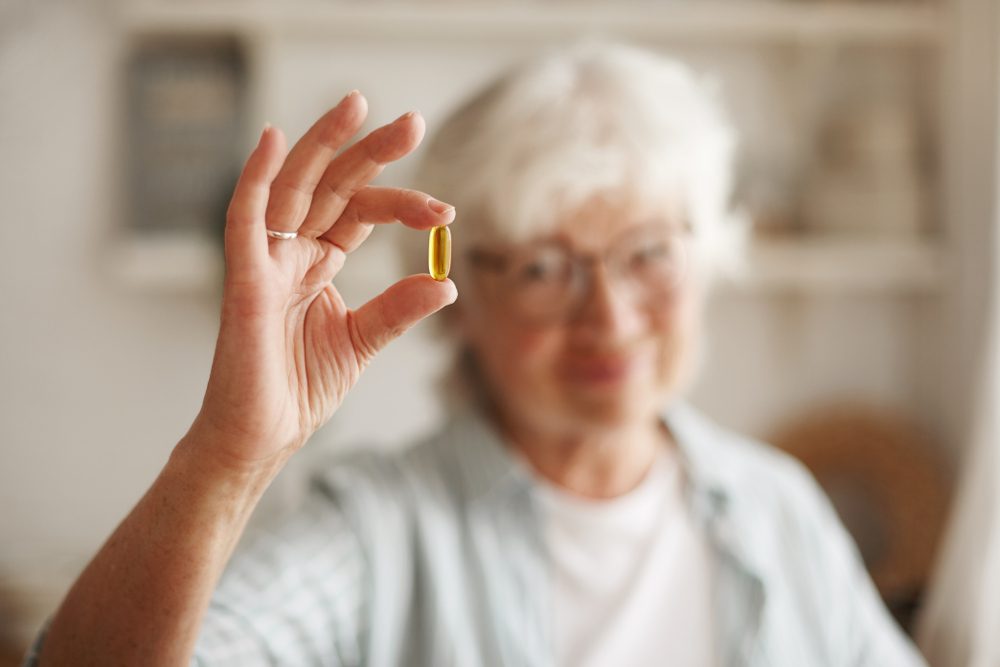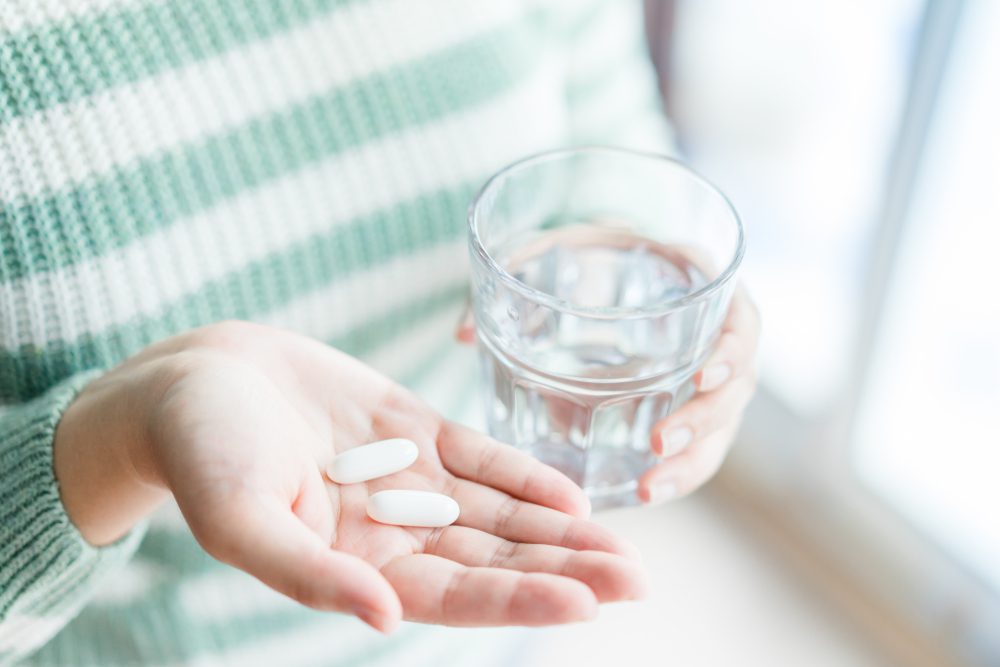When was the last time you stopped to discuss your treatment with the pharmacist?
According to Matthew Grissinger, RPh, FISMP, most people just come in quickly, get their medication, and get out without any further questions.
As it turns out, this mistake might cost you big time in terms of side effects, allergy reactions, and overall health.
You may think that if you have a prescription from your doctor, you can safely take your medicine as suggested. However, doctors may often omit to tell you that some medications can interact with the foods you’re going to eat or if you can enjoy alcohol during the treatment.
Spending just a few extra minutes explaining your situation to the pharmacist can help you stay safe and healthy. But what are the most important things you should ask?
Today’s experts will help us reveal eight essential questions all of us should ask the pharmacist before purchasing any type of medication.
‘How should I store my meds?’
Are you keeping your medications in the bathroom?
This option may seem logical, especially if you have to take them before going to sleep. Your pills are easy to reach, and you’ll always remember to take them.
However, this can also be one of the worst places to keep any medicine.
According to pharmacist Matthew Grissinger, RPh, FISMP, keeping your medications in the bathroom can be one of the most uninspired decisions. Why?
because this place often records the highest humidity levels and the highest temperatures (think of long baths and hot showers).
Most types of medication should be kept in a cool, dark place – and some even require refrigeration. Always ask your pharmacist for storage instructions to preserve the properties of your meds.

‘What should I avoid while taking this?’
Sometimes even the most careful doctors can omit to tell you the restrictions imposed while taking a certain treatment.
For example, consuming alcohol with certain drugs can reduce their efficacy as well as cause liver damage by exacerbating their effects.
With other drugs, it can have the exact opposite effect, as it intensifies the drug’s effects – and it’s not just alcohol you should worry about.
The U.S. Food and Drug Administration (FDA) points out that grapefruit juice can affect the production of an enzyme responsible for cleaning the liver from certain medications, including blood pressure drugs.
You can avoid all these risks simply by asking your pharmacist if there are any foods or beverages you should avoid during treatment.
‘How do I know if my treatment works?’
Just because your doctor has prescribed you some medication doesn’t necessarily mean it will work wonders. You need to know which cues to follow and how your body should theoretically react to your treatment.
Also, if you’re having any trouble taking your medication, you should always tell your doctor or pharmacist about it. Some people have a hard time swallowing larger tablets, while others’ schedules may not match their treatment.
According to a poll from NPR-Truven Health Analytics, more than one-third of adults stopped taking their medication without telling their doctor – which can seriously affect your health.
‘Why am I taking this?’
This seems like a silly question for many.
Of course, I know why I’m taking these drugs, my doctor prescribed them!
Well, you’d be surprised by how many people are taking drugs without knowing what they actually do to their bodies.
Whenever you’re purchasing new medication, ask your pharmacist what it’s good for. Double-checking can give you peace of mind or some valuable extra information!
As for refills, always check the label and the tablets to make sure they’re the same ones you used to take. If you notice any difference, by all means, contact your pharmacist or doctor right away!
The drug brand may have just changed the appearance of the medications, but they could have also changed their purpose or content.
Here’s what Michael T. Rupp, Ph.D., professor of pharmacy at Midwestern University in Arizona, has to say:
‘As someone who does expert witness work in pharmacy malpractice cases, it is distressing to see how often the patient saw something that didn’t seem right but did not mention it to the pharmacist.’
‘Can I safely mix these meds?’
Let’s say you’ve been taking blood pressure medication for a couple of years. Now you’re having stomach cramps, so your first thought is to run to the pharmacy and get those pills that will fix everything quickly. After all, your mother-in-law is constantly taking them, so they must be safe, right?
Sadly, too many people end up suffering due to this way of thinking. No matter how popular or harmless a drug may seem, you should never assume it’s okay to mix it with another type of treatment.
The most effective way of avoiding drug interactions is to write down the list of every drug you’re taking at the moment. Carry that list with you everywhere, as it also comes in handy in case of an emergency situation (think hospitalization).
‘How long will I have to take this?’
A study published in the Annals of Family Medicine looked at 50,000 primary care patients who had been taking medication for longer periods of time.
The stunning results proved that 43% of all participants had been taking medication for much longer than they actually needed to. This includes antidepressants, drugs used to treat heartburn, and osteoporosis medication.
Specialists often call this practice ‘legacy prescribing.” Unfortunately, it can have a seriously negative impact in the long run since your body basically keeps receiving treatments it doesn’t need.
Asking your pharmacist how long your type of treatment usually lasts can give you a general idea of when you should contact your doctor or get a new checkup for your condition.
‘What if I forget to take my meds?’
Now that you know that keeping your medications in the bathroom isn’t such a great idea, you probably move them to a different room.
And maybe this change can make you forget to take your medications as prescribed.
Whether we’re too tired, busy, or even too relaxed to remember to take our treatment, it can happen to anyone.
The problem? If you forget to take some meds, you can just continue your treatment without worrying about the missed day. With others, though, you might need to double your dosage so you can catch up.
Asking your pharmacist what you should do in case you forget to take the tablet can truly keep you healthy and worry-free.

‘How should I take these meds?’
If your doctor has prescribed you a certain treatment, they’ve probably told you the recommended quantity and frequency for each. This information is crucial because it can directly influence your treatment.
Therefore, it’s always a great idea to double-check these recommendations with your pharmacist.
According to Dr. Rupp, going to the same pharmacist to take your treatment can be extremely beneficial – especially if you’re taking multiple meds:
“There is real value in establishing a relationship with individual pharmacy staff—both pharmacists and technicians—who get to know you and are familiar with your medication therapy.” Ideally, patients would have their prescriptions filled and dispensed during days and times when the staff they know are on duty.’
‘It’s my right to know!’
Just as with every other domain, most people have no idea they have some rights too whenever they visit a pharmacy.
For example, did you know that your pharmacist is required by law to provide medication counseling every single time you come with a new prescription?
Asking a series of simple questions is easy, free, and can literally be life-saving.
Let’s remember, for example, the shocking story of a two-week-old newborn who was prescribed a treatment against seizures. After getting the medicine, the child’s father noticed the dosage was strangely high, so he instantly called the doctor to double-check the prescription.
It turned out that the medication dosage was so high, it could’ve been life-threatening for the newborn.
However, if the newborn’s father had asked the pharmacist about the recommended dosage before purchasing the medication, this terrible situation could’ve been avoided.
Drugs & vaccination
Ever since the first COVID-19 vaccine came out, vaccination-related topics have been widely debated.
Are vaccines safe? Can anybody get vaccinated? Are these vaccines interfering with the medication you’re currently taking?
If you are curious about what the pandemic looked like through the eyes of a professional, this book might help.
You should also check out: Aging or Parkinson’s? Here are 13 Essential Ways You Can Tell













